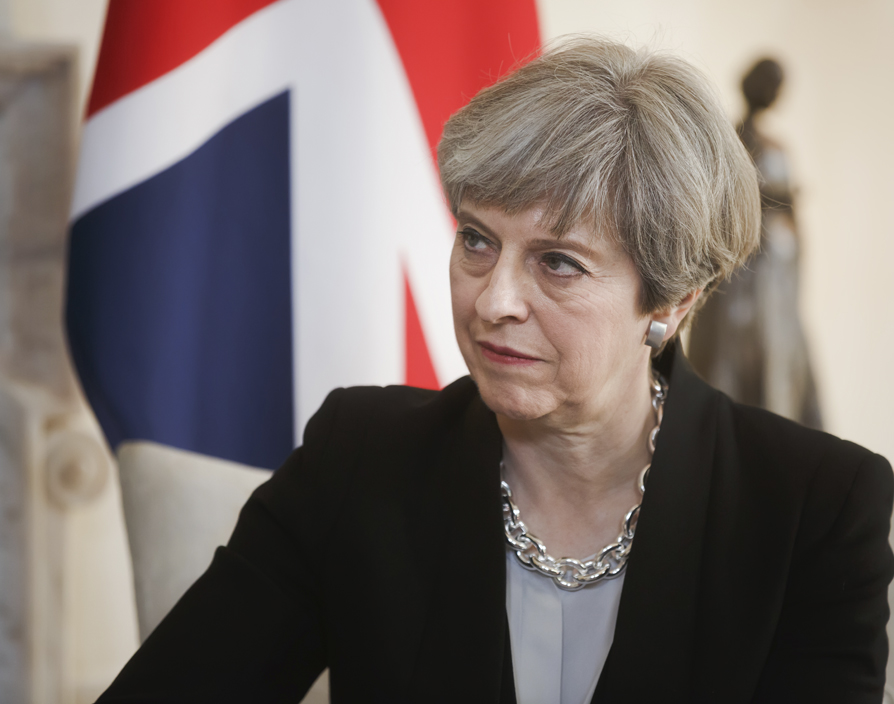Photo credit: Drop of Light/Shutterstock.com
It won’t have escaped anyone’s attention that the UK is gearing up for a general election. Ever since Theresa May called for a snap election, Britain’s political parties have been working overtime to ensure the odds are in their favour come June 8. But the prime minister’s plan to charge companies up to £2,000 for every non-EU worker they hire may not be the sort of policy announcement the business community was hoping for.
However, the immigration skills charge is nothing new: it came into effect in April 2017 and was introduced in 2016 by David Cameron. The aim was to reduce the UK’s reliance on migrant workers and instead invest in upskilling British nationals. The levy currently requires medium and big businesses to pay £1,000 each year for every skilled non-EU worker they employ, while small firms and charitable organisations would need to pay £364. But if elected, the Conservatives could double that annual levy to a maximum of £2,000. And in addition to the higher cost involved in hiring foreign talent, non-EU workers could also face higher charges to use the NHS.
The pledge is set to be officially unveiled later today as part of the Conservatives’ manifesto. It reflects the prime minister’s ambition to slash immigration to tens of thousands a year, a promise previously made by the Tories in 2015. And as for workers from EU countries, Robert Goodwill, the immigration minister, suggested in January that the levy could be extended to them after Brexit. But No 10 was quick to state that this wasn’t on the government’s agenda.
Defending the policy on BBC Radio 4’s Today programme, Jeremy Hunt, the health secretary, said that while the government recognised that non-EU workers are “incredibly important”, he thought that it wasn’t fair “if you bring in these workers from overseas” but “don’t train up our own people and give them the skills such that they can do some of these higher-paid jobs.” He added that the Tories are “listening to the message that people gave the political establishment on June 23 last year” and the electorate “wanted control of our borders and they wanted immigration reduced”.
Nevertheless, the policy has already attracted criticism from a number of people, including George Osborne. The former chancellor and current editor of the Evening Standard has published an editorial referring to the policy as “politically rash and economically illiterate”. He’s calling on May to scrap the immigration target altogether. According to him, that’s what her cabinet wants anyway, saying that “none of its senior members supports the pledge in private and all would be glad to see the back of something that has caused the conservative party such public grief”.
The UK’s business community has also raised concerns the impact of making it more expensive to hire foreign talent. “Businesses are already worried that Brexit will stop talent getting to the UK,” said Caron Pope, managing partner at Fragomen, the immigration law firm. “Even now it would cost £15,000 in government fees to sponsor a talented worker if they have a partner and three children. Throwing another £5,000 on top is unnecessarily punitive.”
And Sean Mallon, CEO of Bizdaq, the business for sale platform, worries that increasing the charge would make it harder for startups to grow. “For tech companies in particular, countries like America and India – places outside the EU where the talent pool is far larger and more varied than within the EU – provide high numbers of highly skilled tech employees with developers in particular being highly sought after,” he said. “Restricting this will certainly hinder the growth of startups in the UK.”
So given the nervousness that’s already been caused by the pledge, we hope that whoever wins on June 8 will take the business community’s worries seriously. ![]()
Share via:








































